“Butru humni ki business ke baare mein likh rahel [This young woman is writing about our business],” Meera Devi* calls out to the woman who’s just walked up to the gathering of women sitting in the gaanch (sandy grove) outside the Kali Mandir in the village of Hariyadih, Bihar. Both women are talking about me, the obvious outsider and new addition to this group of women who are rolling beedis this late Monday morning. The gaanch is lively, the shade offering respite on an otherwise searingly hot day.
Sexagenarian Meera Devi has taken it upon herself to introduce me every time someone joins the group, mixing and matching the details she discloses: “she’s from Hyderabad, she’s from Jamui, she’s doing a survey, she’s trying to get us government benefits” – which I hasten to clarify – but one stays fairly constant: “she’s trying to understand our business.” All of the women sitting under the shade of trees are rolling beedis. “Every woman in the village does this,” says Meera, “What else is there to do?”
“We know smoking beedis is bad for people’s health, that it causes all kinds of problems, but until the government gives us something else to do, what else do we have?” 30-something Suman Devi* is quick to add, and I wonder if it is defensiveness I’m hearing in her voice. When I ask if any women they know smokes, they laugh. “Only men smoke,” says Rupal Devi*, who says she’s in her 40s.
None of the women can remember when they started rolling beedis – they’re bad with years, they say, as they struggle to recall their own ages. But they all tell me the earliest rate they remember. “I’ve been making beedis since we used to get 8 rupees for 1000,” Prerna Devi* says, laughing when my eyes bug out of my head before I school my reaction. Today, they get paid Rs. 100 for 1000 beedis by contractors.
How fast one can make them depends, explains Meera – does someone have greater care taking responsibilities, with young children or older in-laws? Does someone have more hands in the household to help? “I am older now, my fingers are less nimble and I have difficulty seeing. I can’t sit for so long also,” says Meera. The fastest of the 15-odd women present, Suman, says she can make 1000 in 2-3 days if she’s starting from the very first step.
It quickly becomes clear that a majority of the women belong to scheduled castes and none come from land-owning families. Apart from better-paying but very seasonal agricultural labour in the village, they don’t have any other livelihood options – or at least not ones that allow them the flexibility to take care of their homes and families and also stay within the village.
Their days begin at anywhere between 4 and 6AM – they clean their homes, wash their dishes, prepare food, and get their children ready. As domestic responsibilities wrap up, they gather their beedi-making materials and head to the gaanch.
The women don’t gather because of compulsion – each woman is responsible for and gets paid for the beedis she makes individually. “We sit together because we like it,” says Meera as though it’s obvious, “mann lag jata hai.” It is true that in the entire time that I’ve been sitting there, two things have rarely stopped: these women’s hands as they mould tendu leaves and tobacco flakes into cigars, and their conversations. And the conversation is varied. One woman brings news to the table: a woman recently died in a nearby village. There is some controversy around how many hours later they found her body – I struggle to keep up with the local dialect – but I can hear the shock in their tone.
Each woman is sitting on an empty sack flattened like a mat, with winnowing baskets in front of her. Each carries the raw materials it takes to make beedis: tendu leaves, tobacco flakes, cotton thread and three iron tools – a heavy pair of scissors, a pencil-like tool called the tunga and a palm-sized trapezoid called the farma.
They complain about their beedi contractors and their husbands and Modi. Children, primarily boys, are running around and playing around the gaanch. Older daughters are sitting next to their mothers, learning the trade. Some women have brought their goats to graze here. Every so often, a guardian or two have to get up when they hear a child wail, a clear indicator that it’s time to break up a fight.

As a woman picks up a thin stick and marches toward her young son for creating trouble, Meera is talking about the young woman who recently ran away to marry a boy of her choice. Rupal points out that the boy belonged to the same caste as the runaway bride; Meera shakes her head, as though to say, “uff, this generation”.
Sometimes, organically, women fall silent and out of the larger conversation; other times, different threads capture the attention of different women, so multiple conversations bubble up in smaller groups. Someone gets on a WhatsApp video call with her sister, who lives in a village in West Bengal after marriage.
One decides to play a Bhojpuri movie on her phone, placed upright against a plastic bag of leaves and angled in a way that her neighbours can also see.

The group is amorphous: women swiftly pack up their minimal set-ups to attend to other chores when the need arises, and more women are constantly joining in. Their hands never still.
A helicopter flies overhead, and children run towards it. Curiosity gets the better of a few of the women too, and they join the children. “It must be going to Pakri,” speculates Prerna. The ex-agriculture minister of Bihar and a stalwart politician, Narendra Singh, passed away. His home was in the neighbouring village of Pakri, so this is an educated guess. The helicopter revives a larger group discussion about him.
These women tell me about the different kinds of challenges they face regularly. “We give 1000 beedis but we rarely get more than 80 rupees,” says Rupal, “[The contractor] easily rejects 200 beedis, citing issues with the red leaves or the size of the beedi.”
“But he never gives us back the rejected ones or throws them away in front of us,” says Prerna knowingly, referring to the common practice of selling the better-quality beedis for branded packaging while selling the B-grade ones locally, unlabelled. Because they are given raw materials by weight and not by quality, the leaves are often impossible to work with. And if they aren’t able to make 1000 beedis from that set quantity, they are directly accused of selling the missing share of beedis in black.
To work for 8-10 hours on end, sitting in one position, often affects their health. Body aches and trouble with their eyesight are common refrains. Painkillers offer temporary respite. And sometimes, just the repetition of the work gets to them: “Mann oob jaata hai. We can take the day off, but we’ll lose a day’s income,” says Suman.
“The government should take care of us. Wouldn’t it be great to get a pension? Or glasses? My eyes hurt,” says Meera laughing, and everyone else does too. These women are informal, home-based workers in rural India. There is difficulty, but there is a matter-of-factness around it. In the meantime, there is this gaanch, open to all. The conversation quickly steers towards the trip all these women will take to come to Hyderabad when I (inevitably, hypothetically) get married. The tips of my ears burn but I find myself laughing with them, thinking about the boundaries between agency and circumstance, labour and leisure.
*Names changed to protect the individual’s privacy

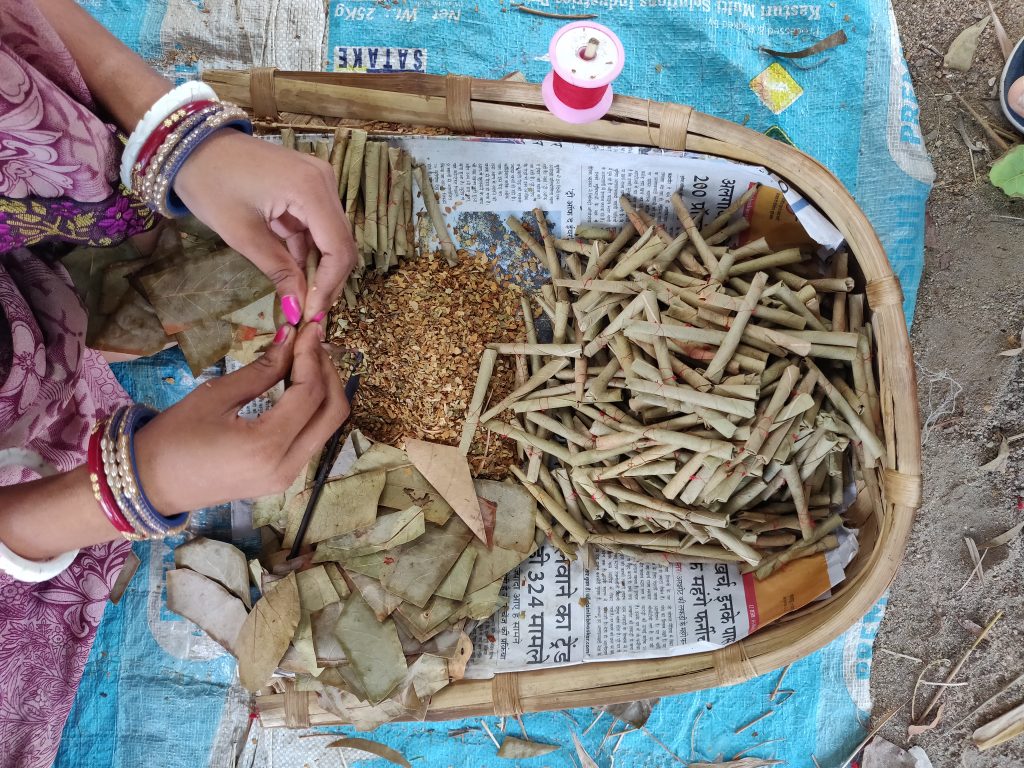
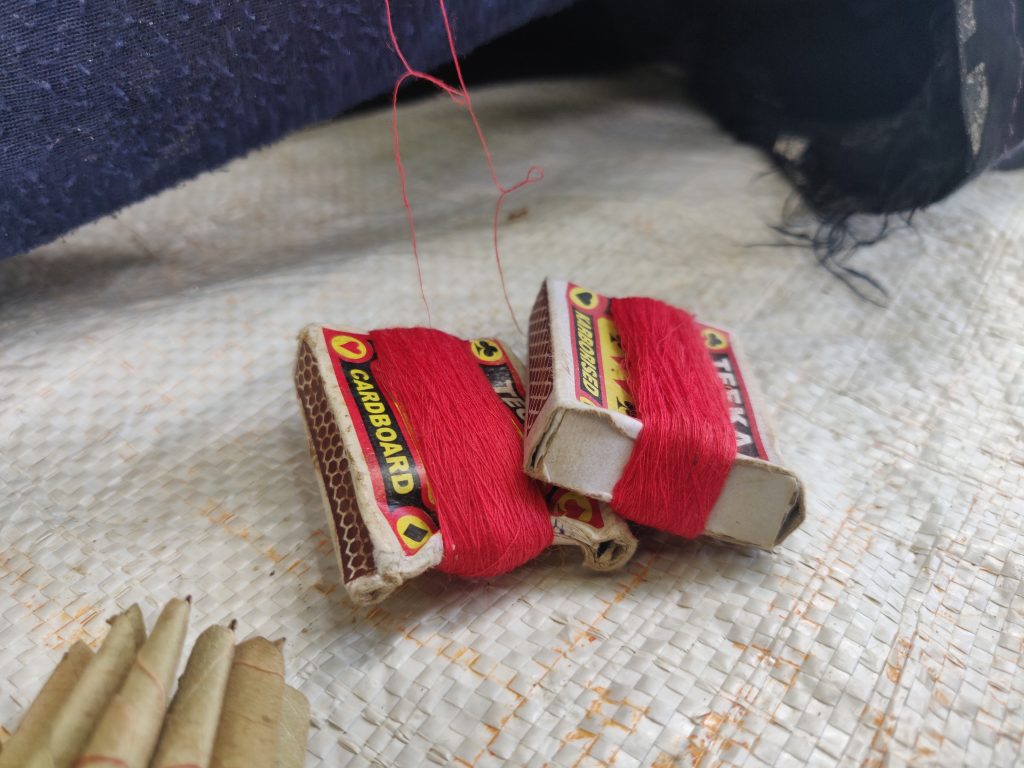
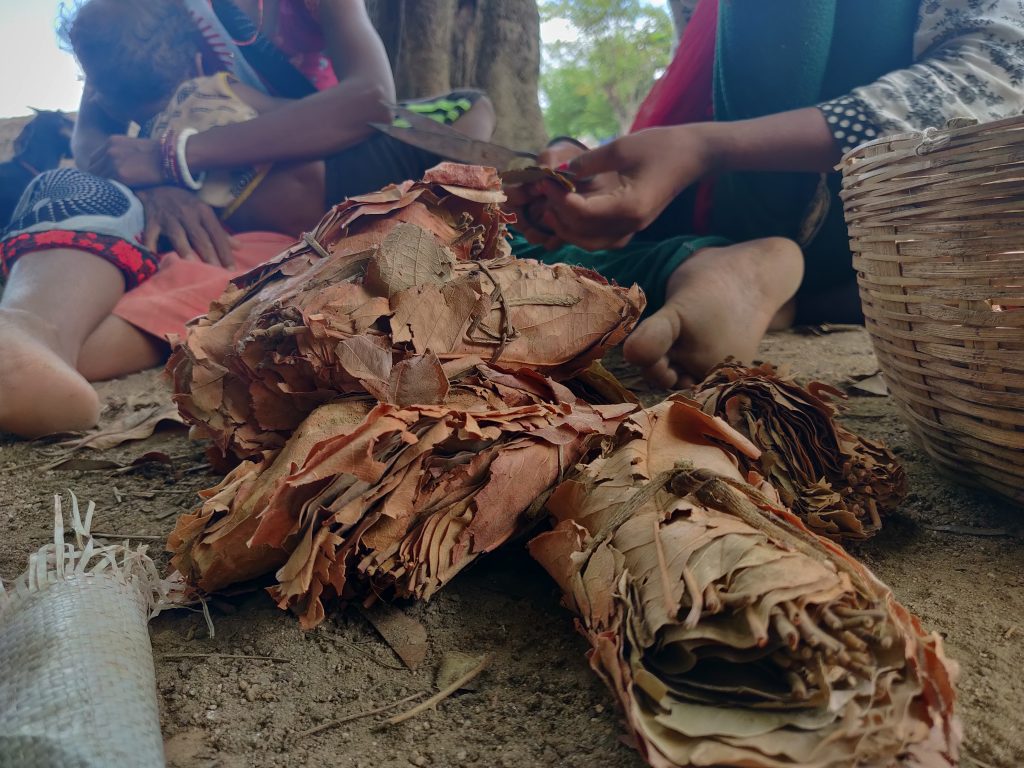
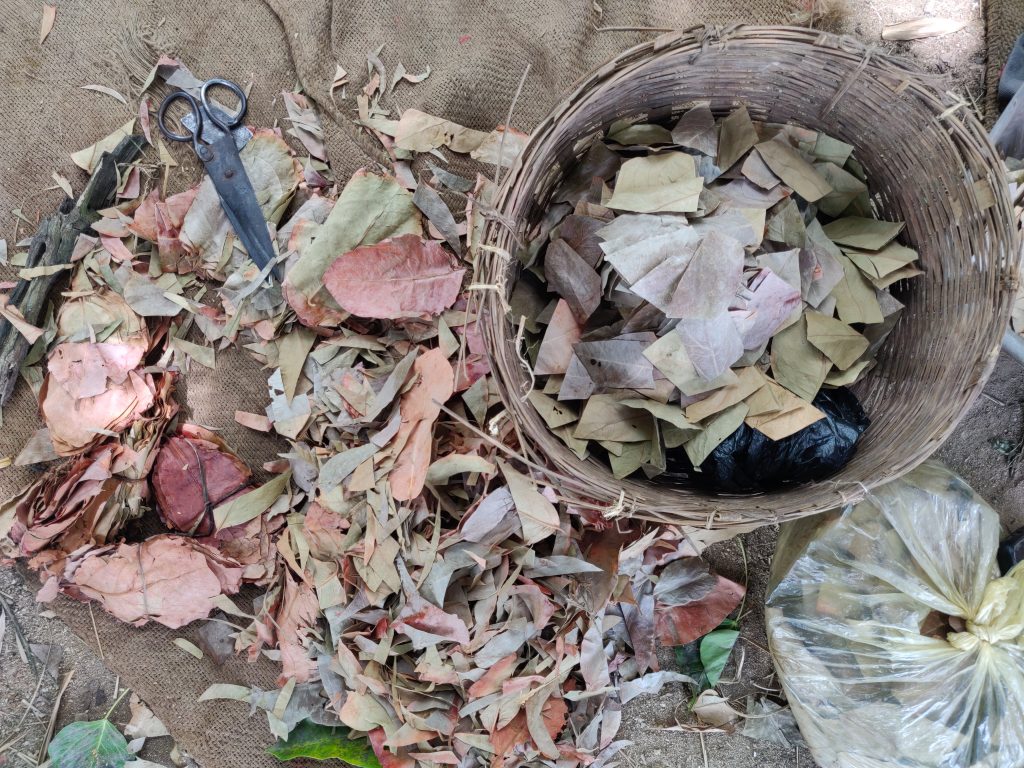
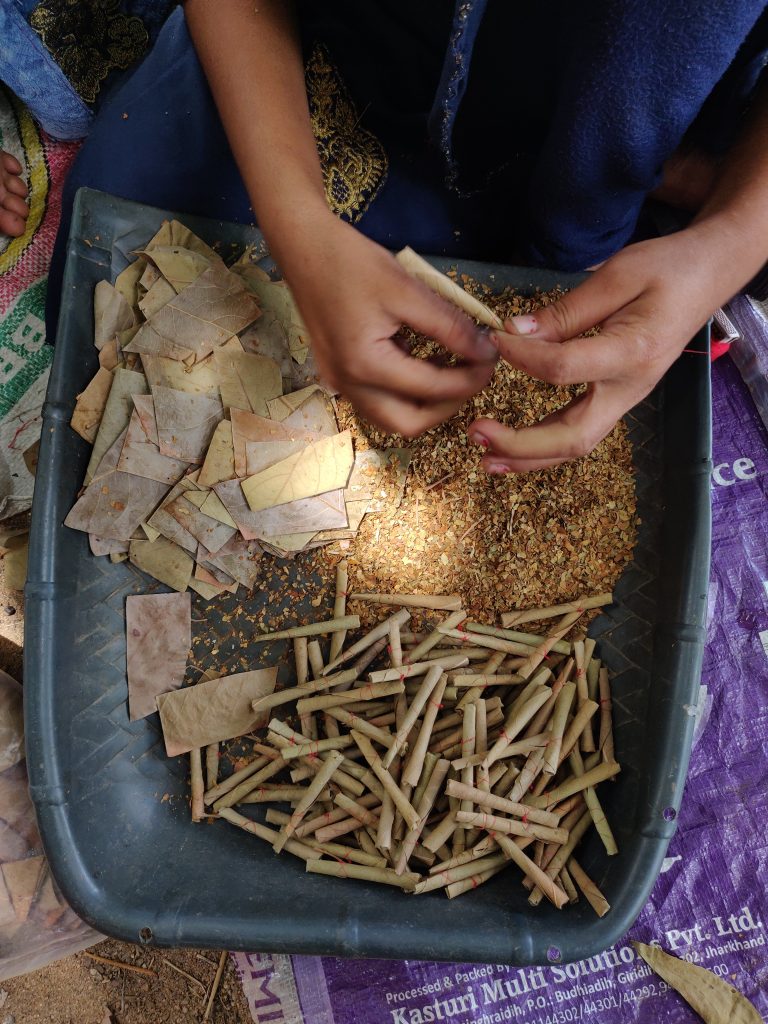
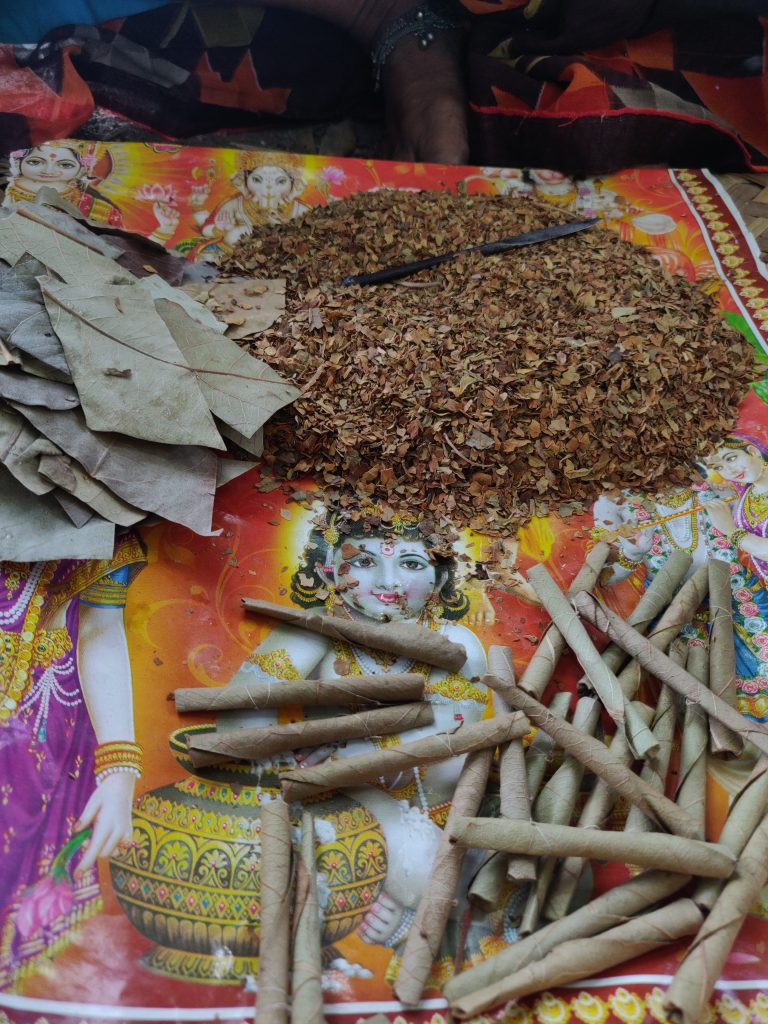
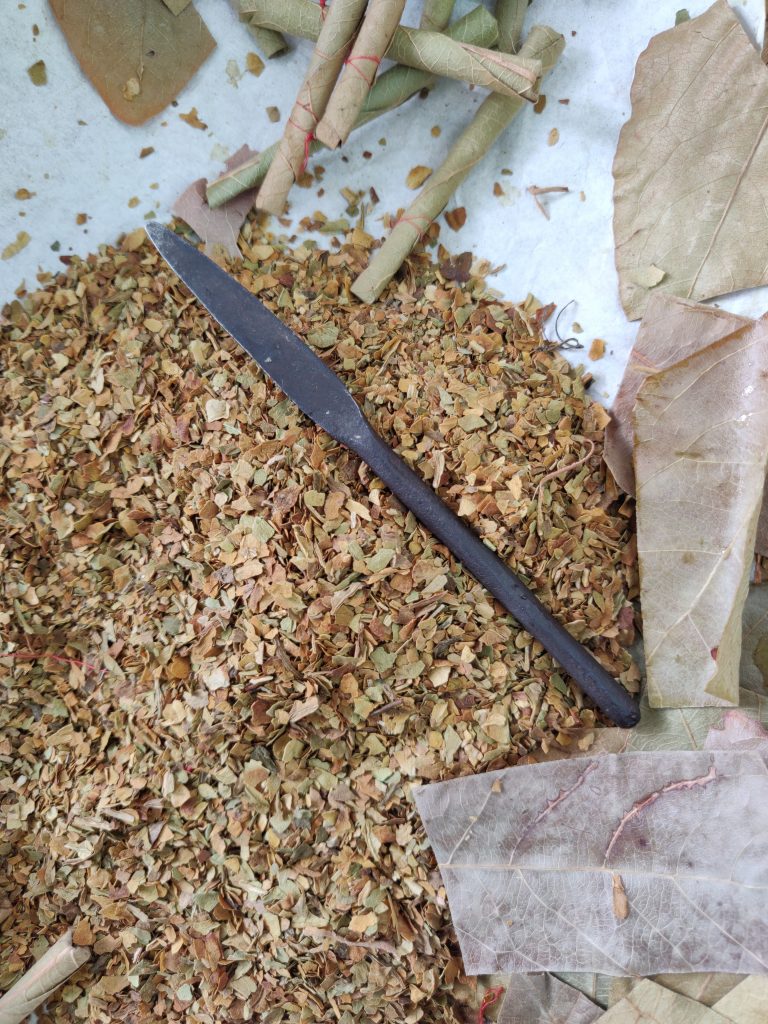
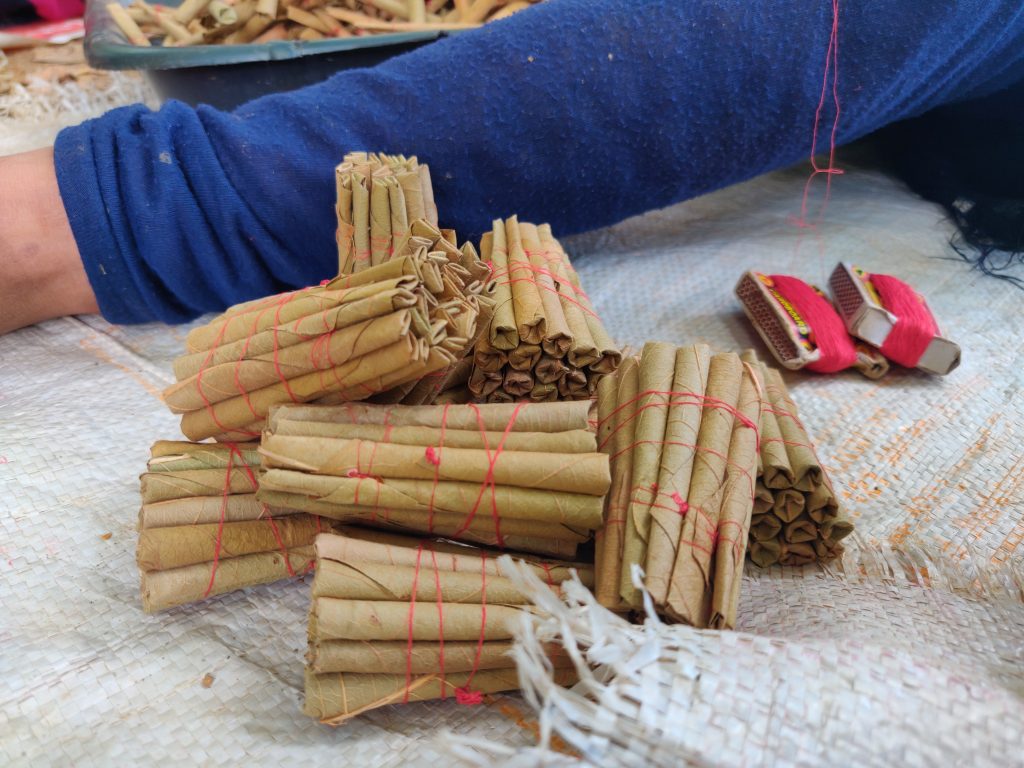
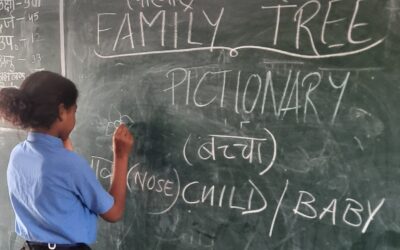
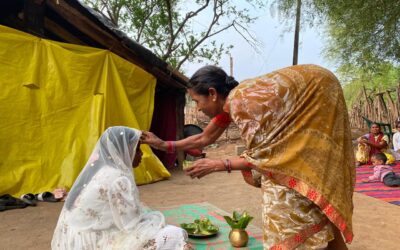
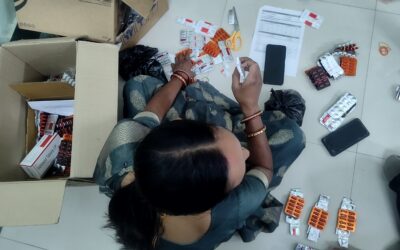
So beautifully written and documented, loved reading this!
Wonderfully visual and warm, while making a point. Quite like the women.